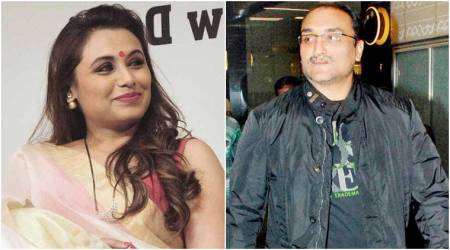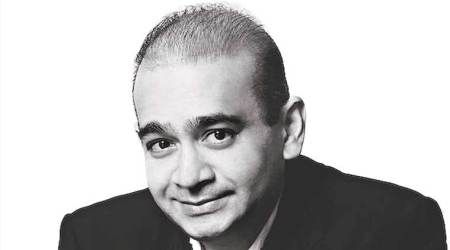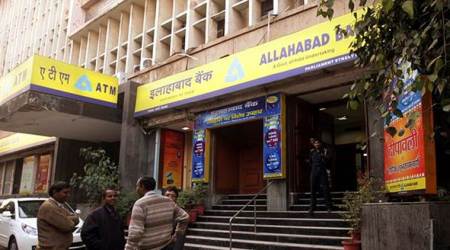 Prof. Saubhagya Vardhan. Jaipal Singh
Prof. Saubhagya Vardhan. Jaipal Singh
Prof Saubhagya Vardhan, former head of the Music department at Post Graduate Government College for Girls -42, is the new director of the North Zone Cultural Centre. He speaks to Indian Express about how he hopes to protect and preserve folk art and traditions of various states and establish a connection with the common people.
Music and art have been an integral part of your life since childhood. How will your background give the NZCC a new direction?
My journey in the field of music has been long, and replete with many challenges. My father, late Acharya KCD Brahaspati, was the doyen of Rampur Sadarang Parampara, an eminent musicologist and scholar, who has to his credit books, research papers on music, apart from plays and compositions. Though, I was surrounded by classical music since childhood, it was only in college that I took up music formally and did my MA in it from GCM with a gold medal. My father, my mother Sulochna Brahaspati and Dr Saryu Kalekar, the leading representative of Rampur Sadarang tradition of Hindustani music, showed me the path and were responsible for my training in classical music.
I know that in the field of classical music, dance, there are no short-cuts. You have to dedicate your entire life to your art and passion and as someone who is from the field, I understand the challenges and needs of our artistes.
So, with my background in the field, I hope to launch new projects, initiatives and schemes that will give a platform to both experienced and upcoming artistes and also focus on reviving and preserving our folk traditions, art, craft, music et al. Nothing has come easy to me nor was I served on a platter, so this position for me is all about working hard with honesty to make a difference. My gurus, teachers in college taught me values and ethics to lead life and pursue my music and I strive to bring these values and ethics to the NZCC.
One of your key objectives for the NZCC is to revive the age-old guru-shishya parampara and also promote new talent. How do you plan to do this in today’s times?
As Professor and Head of Department of Music PGGCG-42, I had conceptualised various programmes and performances for students, as part of which every month one student would perform on stage at the college, and in the process gain confidence and get a platform.
Today, 27 of these students are teachers of music, giving the young a new voice. Similarly, we began a programme here in Chandigarh called ‘Chuppa Rustam’, where people who loved music, from various walks of life, were trained by gurus, and so many people performed as part of of this initiative. Also, Classical Voice of India gave a platform to young practitioners of classical music from 47 cities to perform on stage and last December we completed five years. Now, we hope to get these vocalists to train further with four-five gurus for three years and then perform across India, including concerts in Chandigarh. We also want to give these young men and women a stipend and I don’t mind begging for donations, as it is for the larger good of society.
With all these plans, the NZCC will strive to revive the age-old ‘Guru-Shishya’ tradition. We tend to forget that our gurus are the ones who sculpt finest artistes out of us. We forget their role in shaping our destiny. We shall identify them and bring them to mainstream, to produce more artistes under their guidance.
What are your plans for preserving and promoting the folk art and traditions of various states under the NZCC?
The states of Punjab, Haryana, Himachal Pradesh, Jammu and Kashmir, Rajasthan, Uttarakhand and Chandigarh are in the jurisdiction of NZCC and we have plans to protect and preserve the folk art and traditions of these states and save them from slipping into obscurity. We shall constitute special committees to do the ground work of identifying young talent and sending them to learn under the stewardship of gurus.
Our aim is to strengthen the artisans and folk singers in remote areas and to preserve the diminishing folklore and art of India. One of the key projects that we will be started in all states is documenting folk songs from birth to death and then make a documentary with extensive interviews of the singers. We have some amazing oral traditions and starting from Punjab, the plan is to research, interview and document the journey of these people who are no longer in the limelight, but are carrying the age-old traditions forward. Sponsored by the NZCC, these documentaries will be shown on various channels, so that common people can connect with these traditions.
As director of NZCC, what will be your role and contribution to widen the scope for cultural connects and also give artistes better opportunities and prospects?
I have connected to people of different states to form and chalk out concrete plans to organise music, dance, theatre festivals. We soon plan to organize a theatre mahaotsav where theatre groups from Punjab and Chandigarh will be given financial and logistic support to stage new productions and committees in every state will be formed to take this work forward. Also, every Saturday of the month, we will have programmes for budding artists here at Tagore Theatre. This is not a chair for enjoyment, but work.
For Jammu and Kashmir, we have special plans, starting with a Tribal Festival in Jammu from February end. People need to connect themselves with their cultural roots, have more interactions with the other states of the country, so as to develop a bond of mutual trust and faith. Cultural connects can build many bridges and there is an urgent need for building a healthy relationship between people of various states of the country for reinforcing ‘Unity in Diversity’.
For all the latest Chandigarh News, download Indian Express App




























